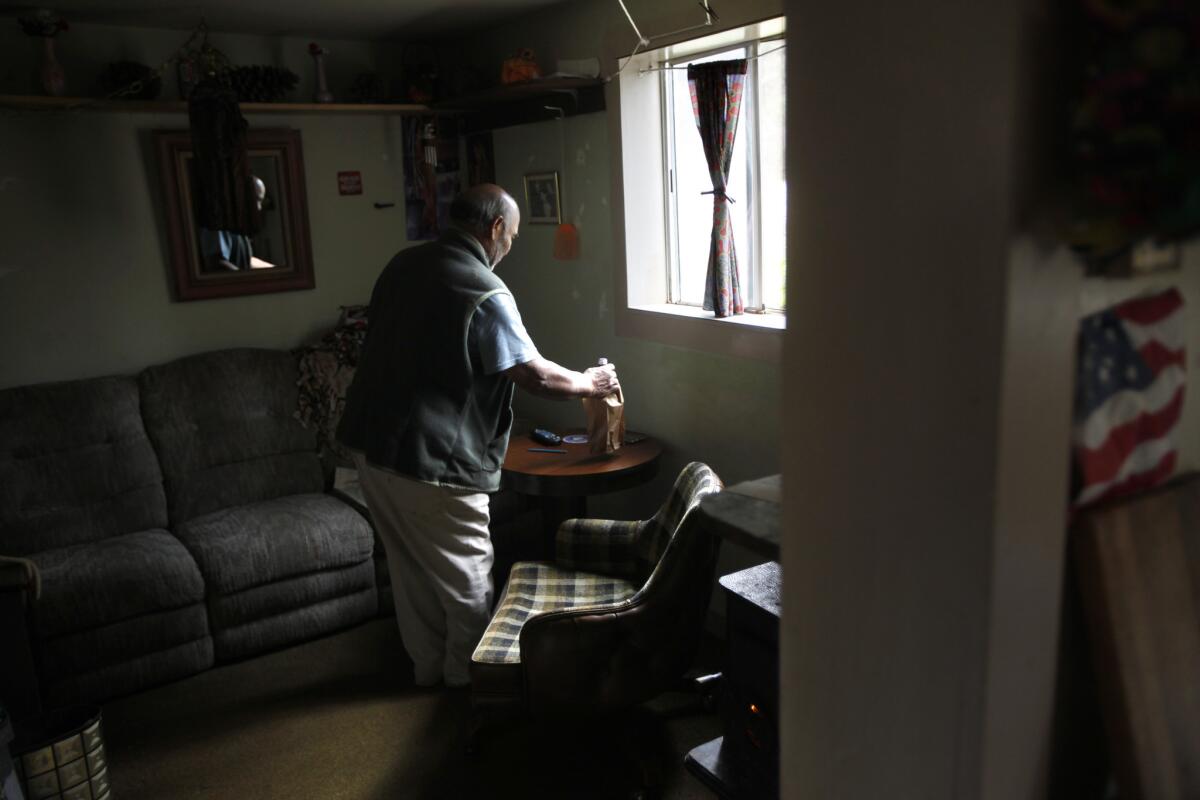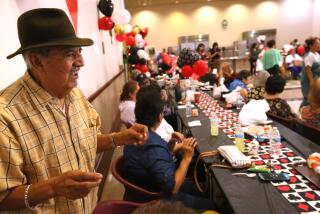New face of elderly: More diverse, more educated, more divorced

- Share via
Twenty-first century seniors: They’re not your grandparents’ old folks.
The elderly are growing increasingly diverse in the United States, a new report from UCLA researchers shows. Roughly one out of five are members of a racial or ethnic minority. More than one out of eight were born outside the country. By 2050, Latinos are projected to make up 20% of those 65 and older.
Their lives also reflect other changes that have reverberated through American society in recent decades: Nearly 12% of seniors are separated or divorced, almost three times as many as in 1970, the report found.
Far more have college degrees than the elderly of decades ago. In 1970, only 6% of elderly men and 5% of elderly women had a college education; by the 2007-2009 period, those numbers had swelled to 27% and 16% respectively, researchers calculated.
And while men are less likely to keep working into their later years than they used to be, women are more likely to continue working through their 60s – another sign of the swelling numbers of women in the workforce across all ages, the report found.
The findings complicate the familiar stereotype of seniors as white, wealthy and retired. Earlier studies have shown that households headed by the elderly have grown wealthier, while the economic fortunes of those headed by young adults have tumbled.
However, a closer look at the elderly shows that not all are at ease in their “golden years,” said Judith Seltzer, co-author of the report and director of the California Center for Population Research at UCLA. The growing diversity among the elderly has serious implications for families, because some elders are much better poised to help their descendants than others.
“Those with fewer resources, educationally and economically, are the ones whose offspring are the most likely to need their help,” Seltzer said. “That will likely exacerbate inequality – not only among the old but among the young.”
For instance, divorce and other forms of family disruption are more common among poorer families, which often comes with economic costs.
Those families might then turn to a grandparent for help, but their elders have less resources to offer than other seniors. Americans with a college education are more likely to provide financial help to their adult children – and more of it – than those with less schooling, consumer surveys reveal.
Poorer elders, in turn, are more likely to help in other ways: Grandparents living in poverty are much more likely to take responsibility for caring for their grandchildren, Census Bureau data show.
The UCLA report is part of the US2010 Project, a research initiative funded by the Russell Sage Foundation and Brown University to examine recent changes in American society.
ALSO:
Supreme Court backs California officer, tosses lawsuit
L.A. schools’ iPad initiative could be hard to keep paying for
L.A. council members want statewide measure for quake safety funding
More to Read
Sign up for Essential California
The most important California stories and recommendations in your inbox every morning.
You may occasionally receive promotional content from the Los Angeles Times.











